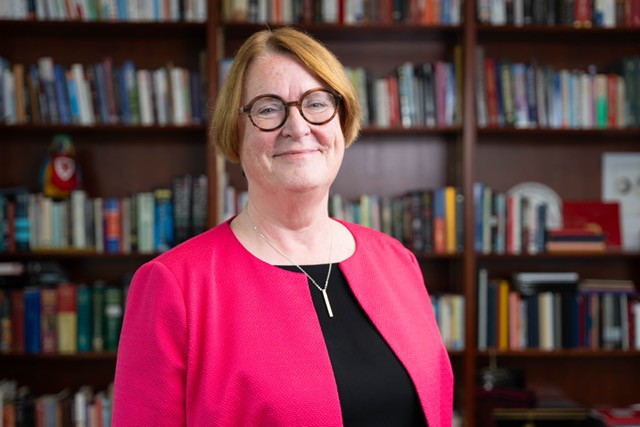Shelley Bosson explores the forthcoming shake-up of the administration at the top of the Welsh police forces
We are all living in challenging times and the Chancellor’s recent Autumn Statement on the rate of recovery of the economy was disappointing to say the least. This will herald even more restraint on public spending running into the next comprehensive spending review. It’s against this challenging backdrop that from next November the Government is introducing elected Police and Crime Commissioners, the most significant reform to policing in the last forty years.
Some have welcomed this initiative whilst others have questioned why in these difficult times the government is spending a considerable amount of money on an untested and unwanted system? There will be four Commissioners in Wales, one for each police force area. They will be elected on 15 November 2012 and take up office a week later.
When asked about what they want from the police, more often than not people talk about wanting to feel safe, having more visible officers in their communities, and knowing if they should ever need assistance then this help would arrive without delay. Will the introduction of these Commissioners’ address and satisfy the electorate in these areas? If they don’t it will be all change in another four years when they come up for election once more.
More democratic accountability is at the heart of the governments’ policy to ensure the electorate have someone who can speak for them in terms of the policing service that they expect to receive. Some have argued that the Commissioners are simply Police Authorities in disguise. This is not the case. The Commissioners have a wider role – hence the title ‘and Crime’. What exactly this entails is not yet clear as the government is still consulting on some of these issues.
The Commissioner will have significant powers including holding the budget, setting the police precept element of the council tax levy, appointing the Chief Constable and a Deputy Commissioner, if they so wish. They will hold the Chief to account and they themselves will be held to account by a Police and Crime panel, made up of local councillors and independent people. However, they will not be able to impinge on the operational independence of the Chief Constable. That is to say, they will not be able to direct where resources such as police officers should be deployed.
The new regime has been likened to the ‘American model’, but it’s not the same at all. If it were we would be electing elected Chief Constables. There have also been comparisons with the London Mayor, but again that system is very different. In London the mayor has responsibility for both local government and police resources and is held to account by the Greater London Authority.
This is a new model it is untried. And while it may have some positives in relation to greater democratic accountability there are also inherent risks that will need careful management. In particular, a large amount of power will be effectively in the hands of one person.
At the moment the big question is how the Police and Crime Commissioners will take up the challenge of their role and balance that with the current and foreseeable financial constraints facing each and every Police Force. The Commissioner will also need to have regard to UK-wide priorities like counter terrorism and serious and organised crime. At the same time, while doubtless having an eye on their next election, they will need to deliver community priorities whilst not doubt having an eye on the next elections.
The election is open to anyone who wants to put themselves forward for this office. Given that they may or may not have any experience of the policing world, a number of obvious questions arise. How will they want to operate? What will their style be? These are the questions we are grappling with at the moment. There is a risk that a Commissioner will be elected on a low turnout on a single issue which is not entirely compatible with national policing objectives.
There is no shadow period, so police authorities are having to build transition planning into their usual police authority business. Much of the detail on how the regime will work will be left to local discretion. Yet this makes planning harder as we are having to cover a number of different options in terms of how the day-to-day business will run. The Commissioner will also undoubtedly have their own thoughts on how they want to operate. So we will have to have multiple options available for consideration not just one.
The aim of the Government policy is to bring greater accountability to policing by having an elected individual holding the Chief Constable to account rather than the existing Police Authority arrangements. This will require a different way of working for both the Chief Constables, our partners, the Welsh Government and the Communities of Wales.
While the current route map of how this will work in practice is still being developed I am confident that we will be able to move to the new arrangements. This will be achieved by building on current relationships to ensure that we have something workable for Wales. We are living in interesting times where the pace of change seems to know no bounds. We will be working with the Chief Constables and our colleagues across Wales to ensure that the transition to the Commissioners is as seamless as possible.






Comments are closed.